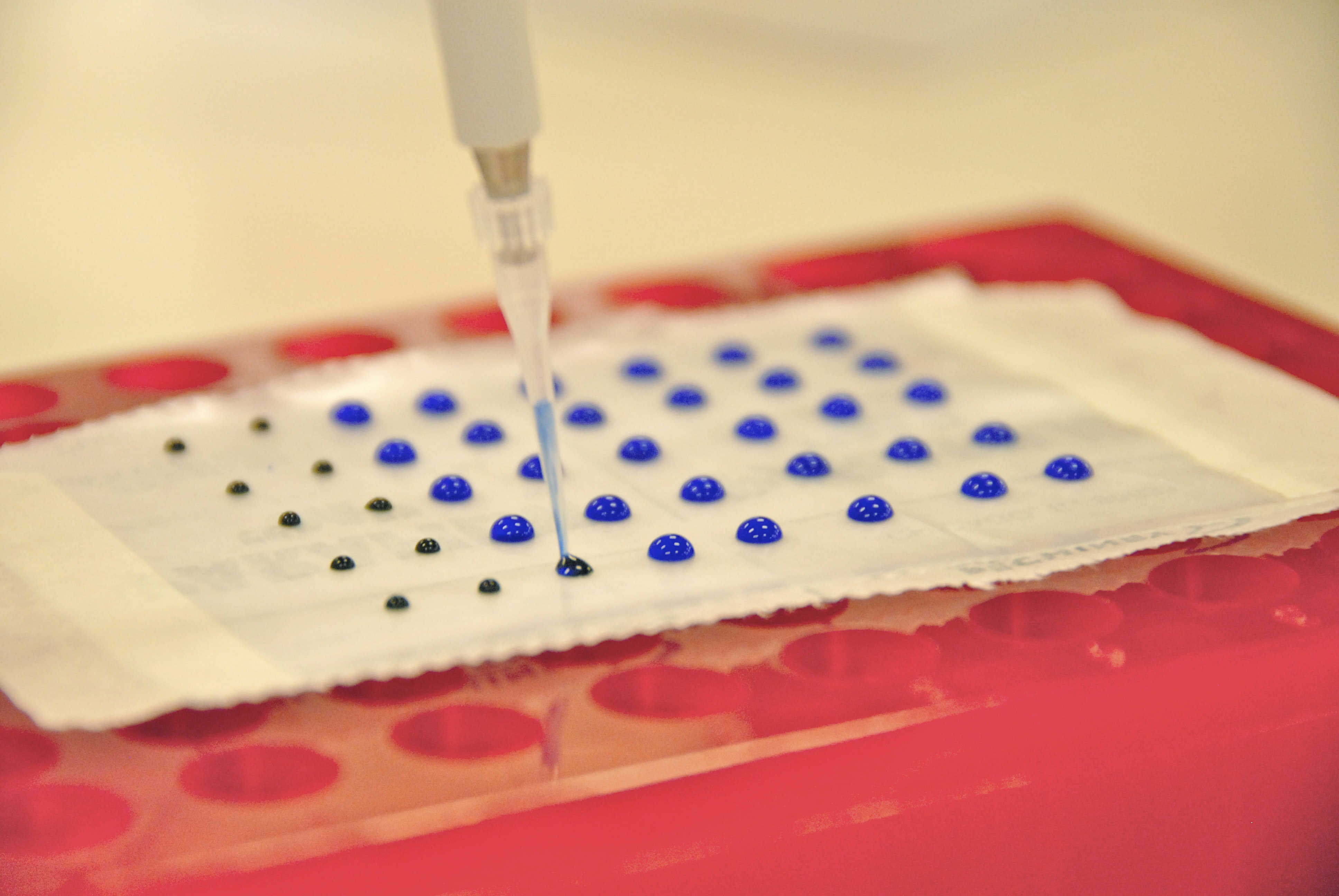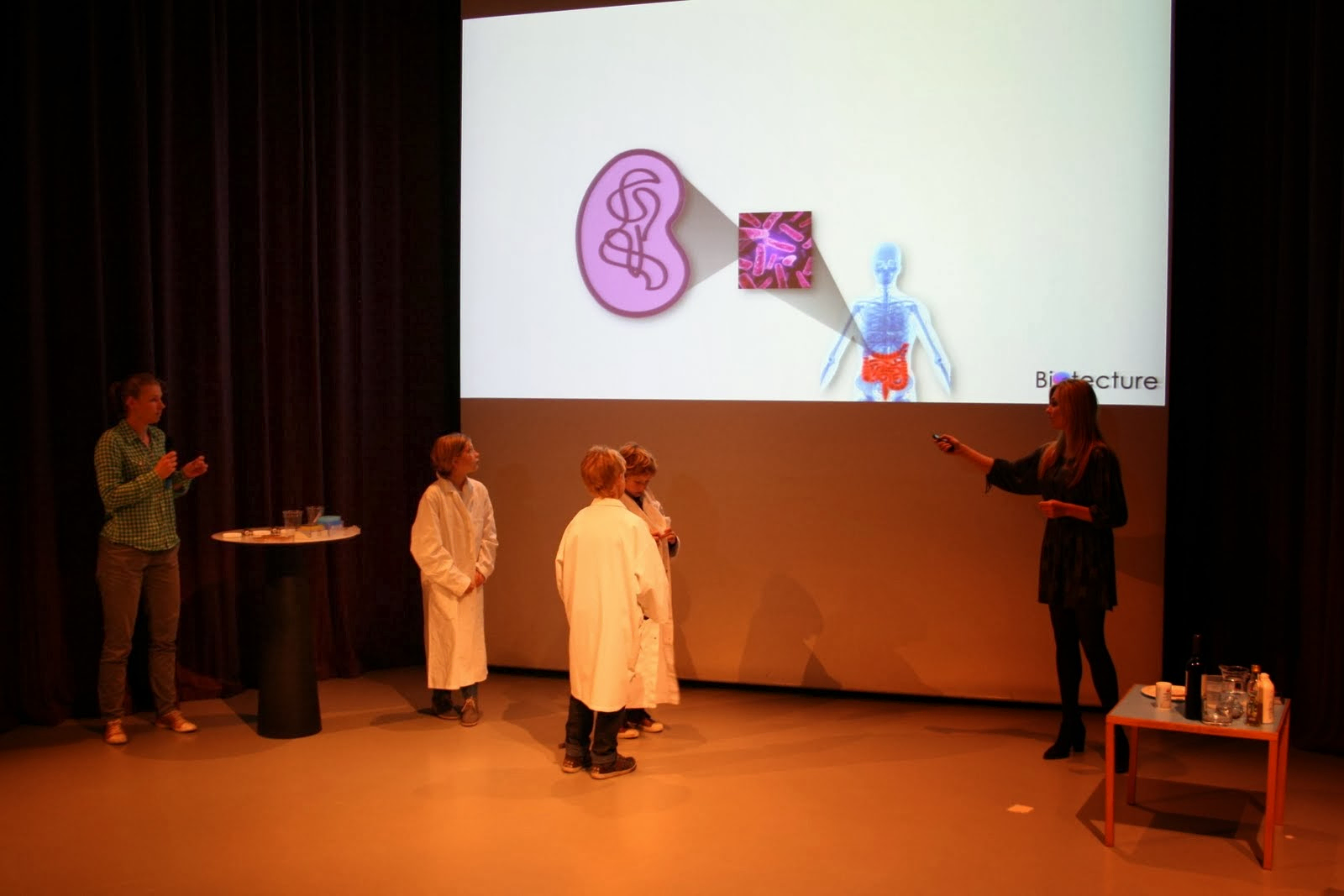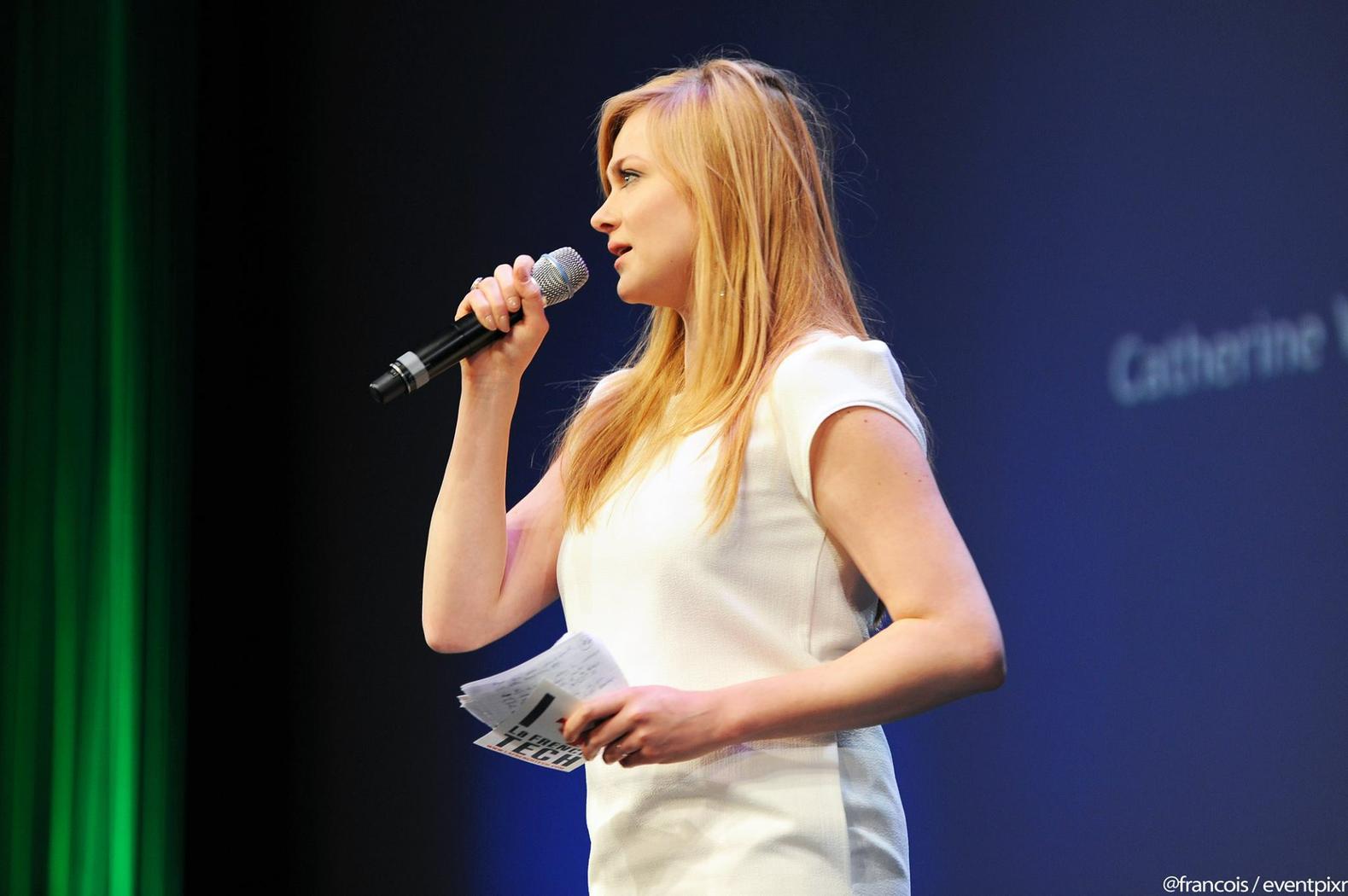Nadine Bongaerts is a Dutch synthetic biologist and entrepreneur who is building bridges between science, business and society. Fascinated by engineering life at the smallest scale, she designs bacteria with new functions. In 2010, she joined a team of TU Delft students to participated in the worldwide synthetic biology competition iGEM (Internationally Genetically Engineered Machine) for which they developed DNA bricks that turned bacteria into minuscule oil-degrading cells. The work was recognized nationally and internationally and awarded with different prizes. Her current research focuses on using genetic engineering of bacteria to produce a pearl-like material with advanced mechanical properties.
Bongaerts is always looking for creative ways to share her knowledge and connect science to societal developments. This resulted in the co-founding of Biotecture (2011), a company for communication and education of Life Sciences. Since 2014, she is Global Community Director of Hello Tomorrow in which she leads a global network of scientists, engineers, entrepreneurs and investors to stimulate interdisciplinary collaborations that accelerate scientific findings to the market.
We recently talk to Nadine Bongaerts about the role and impact of synthetic biology, the gap between biosciences and society and the importance of communication to overcome the fear of new technologies.
The next stage of biology is in a human technology. From the engineering of bacteria to the transformation of entire landscapes, we are the dominant force shaping our planet. What do you think about the concept of nature in this setup? Is it a relevant topic of discussion?
"What I cannot create, I do not understand" this is the principle of synthetic biology
I think we are part of a process. In a way, our technological inventions start to resemble more and more nature’s complexity. This is where technology and nature start to converge with each other. I think the relationship between the two is very intricate and as time passes, they will be more and more involved with each other. I can image a future where it will be very difficult to see the difference between nature and or human created technology.
Would you define synthetic biology as a technology? And what is the role of this discipline?
Synthetic biology (synbio) is using many different disciplines; it's not a single technology. The ambition of synthetic biology is to reengineer existing biological systems or to engineer organisms from scratch. I always remember this famous quote by Richard Feynman: “What I cannot create, I do not understand”. This is the underlying principle of synthetic biology. In synbio, we often make use of computer models to make predictions about biology, then we go to the lab to verify these predictions. Through this iterative process between computer science and biology, we are able to speed up our biological research. As computer capacity increases, we are also able to test more variables that allow us to understand the complex nature of biology. These fascinating developments help us to better understand what biology is like. But still, I have to admit that even the simplest life forms, like the bacteria I work with, are very complex. Even the most common organisms that we use in the lab are not completely understood yet.
Our technological inventions resemble more and more nature’s complexity
What is the relationship between synbio and nature?
With synthetic biology, we have a technology that is actually breaking this dichotomy, because we are using nature in this technology. We are working with nature and we are engineering it in a technological sense. So, if we create an organism that has different genes and doesn't exist in nature, you could question yourself about whether or not this is a natural being. I think it is hard to give a good answer to this question. It’s probably a matter of how you define technology and how you define nature, but synthetic biology definitely changes the image of technology and nature being two separate things.
You were a part of an iGEM project from the TU Delft, where you developed synthetically produced biobricks (standardized DNA codes) to transform bacteria into oil digesting cells. When do you think this technology will be available commercially?
Our team did the first steps toward a biological application for oil-polluted water. We took the genes from natural bacteria that already had genes encoding for to enzymes that degrade certain molecules in crude oil and we gave the same genes to E. coli bacteria. The advantage of working with E. coli compared to most other organisms is that this lab-pet is well studied and that there are many genetic tools available to control its cell functions. Especially precise cell control is difficult to obtain. It can take many years before this particular project becomes robust enough to be used as a system for water treatment purposes and it hopefully will inspire other researchers to continue with our work.
 Engineering Synthetic Bacteria
Engineering Synthetic Bacteria
Synthetic biology and bioengineering come with a lot of stigma. These technologies are often perceived as something bad because of their manipulation of the natural. What do you think is the root cause of this perception and what can be done to overcome it?
Technology is a great tool we can use to find sustainable solutions to certain problems: from curing a disease, to finding eco-friendly energy resource. From this perspective, synthetic biology could help us solve many of these issues; it is a discipline with a high potential in treating humans and the environment. But, as with every new technology, there are also risks involved.
I believe that providing information and opportunities for engagement of the general public and specifically stakeholders is essential in the development of (new) sciences and technologies. This is not always easy and there is still a lot of misconception. For example, when you ask people their opinion on GMOs (genetically modified organisms), in most cases, they say it's a bad thing. Then, when you ask what GMO is, many anti-GMO people have difficulties in explaining what it is and why it is so bad. Also, when you explain that GMOs are crucial for the production of insulin or other medicine, the idea of a GMOs is all of a sudden more acceptable. I am not saying GMOs are good in all situations, but the appropriate use of GMOs is again not black and white. As a society, I think we should on the one hand be conscious about the potential risks, while on the other hand we should not let these risks limit us to innovate. This is easier said than done, but the key is that we should try to maximize the problem solving potential of the technology. This is going to be the challenge of synthetic biology.
Technology is becoming more and more similar to nature
With Biotecture your mission is to bridge the gap between biosciences and society, how do you engage the general public in the discussion about synthetic biology and what do you hope to obtain?
First, my co-founder Eva Brinkman and I start with a creative brainstorm session. We always try to bring the science as close as people’s lives as possible. One time, we did a live cooking show in which we pretended to make extra healthy orange bread with the help of genetically modified yeast. During the cooking we explained the scientific details of our new delicacy and asked people from the audience to taste as piece of it when it was finished. In the end, we explained that our live experiment did not really involve GM yeast, as this is not allowed in a public space without suitable facilities. Still, we were able to give people a taste (literally) of what synbio is about. We see that such tangible experiences help people to be more engaged during the debate and to ask more specific questions.
Through such public interactions, we learned a lot about how different people respond toward synthetic biology. Right now, we are using this knowledge to help researchers to set up good communication with the public. By doing this, we hope to improve the awareness and use of certain technologies (specifically in the life sciences).
 Science Communication & Education
Science Communication & Education
Is there a specific vein of synthetic biology that you think will have a huge impact in transforming human lives completely?
There is a technology called CRISPR Cas9, which is a system found in bacterial cells. It's a very primitive type of immune system able to analyze DNA from viruses that are attacking the bacteria. It's a sort of scanner system that detects virus DNA and cuts it off the virus in order for the bacteria to survive. This technology allows us to cut specific parts of DNA, also human. We could theoretically use this technology to make specific genetic changes in our own DNA. It is a recent technology that hugely increased the ability to engineer cells.
Synthetic biology could help us solve many issues
Why are we having this Next Nature discussion now, and not 1000 years ago or in 100 years?
I think it is because our technology is becoming more and more similar to what nature is doing. Our perspective on nature is changing a lot. We are at a stage where we are getting better at being able to understand the workings of nature and to use it to improve the way we develop our creations.
What are your big plans for the future?
I will soon start with a PhD research in synthetic biology to pursue my scientific career in depth. My plan is to carry on working on life science technologies that have a positive value to add to society.
Thanks so much, Nadine, for sharing your work and viewpoints with us!
Interview by Yunus Emre Duyar. Edited by Alessia Andreotti.
More interviews: Liam Young, Bruce Sterling, Jason Silva, Arne Hendriks, Rachel Armstrong, Alexandra Daisy Ginsberg, Floris Kaayk, Chloé Rutzerveld

Share your thoughts and join the technology debate!
Be the first to comment